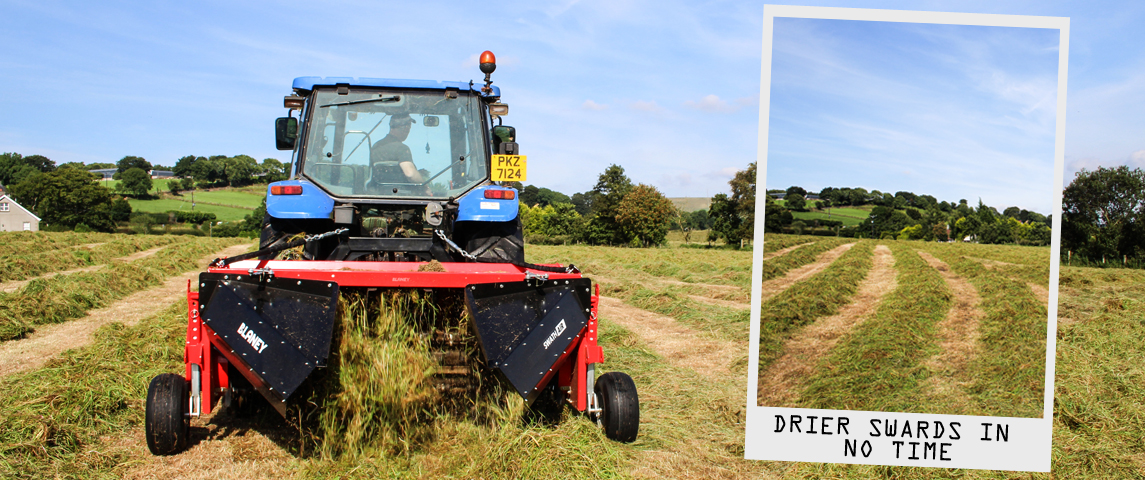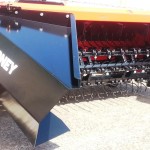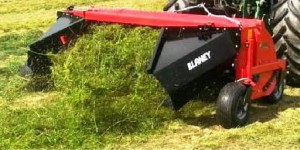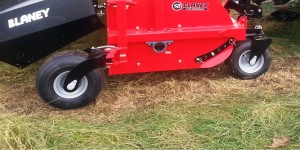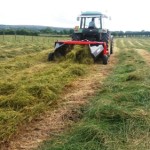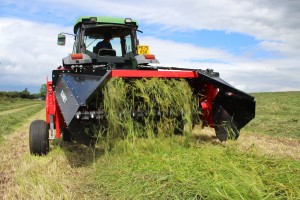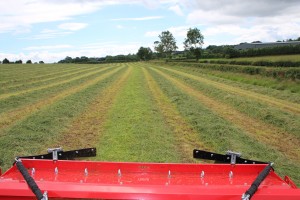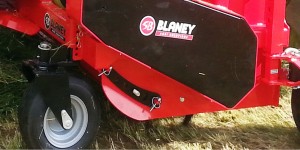Time invested in producing well preserved silage has been shown to reduce concentrate feed requirement by up to 2KG/ hd / day.
The SwathAir has been developed to address the problem of drying grass for better quality silage in short windows of good weather. Baled silage tedded with the SwathAir should result in 28% dry matter (dm) compared to 20% dm for untreated grass. This will result in significantly less bales and greatly reduce unnecessary wrapping costs per hectare. With livestock needing less of this silage du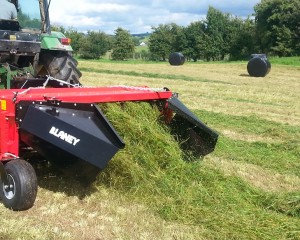 e to its higher quality you will save time in feeding too.
e to its higher quality you will save time in feeding too.
Improve your silage dry matter content and forage quality with the Blaney Agri SwathAir swather.Considerable volumes of water are put into silos or bales when unwilted grass is ensiled. This encourages extensive fermentation which is difficult to control and produces excessive effluent. Not only does effluent corrode concrete and pose a pollution hazard, but effluent loss from silage basically equals digestible nutrient loss, meaning less liveweight gain.
Suits all weather conditions
If you are fortunate enough to have large yields, the SwathAir will help the crop dry evenly to avoid wet and poorly wilted portions close to the ground. If you are lucky enough to be cutting silage in a heat wave, early use of the SwathAir can help to avoid excessive drying when the baler is not immediately available since material with dry matter content higher than 45% becomes increasingly difficult to compress and ferment.
FASTER, BETTER QUALITY SILAGE…FOR TIGHTER, DRYER, BETTER QUALITY BALES
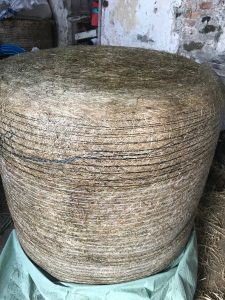 ThIs photo shows a bale made from grass conditioned and swathed with the Blaney SwathAIR. It is a much more compact bale with square sides that don’t sag which prevents air getting in. This will reduce the cost in wrapping, and reduce the time in bringing them in from the field.
ThIs photo shows a bale made from grass conditioned and swathed with the Blaney SwathAIR. It is a much more compact bale with square sides that don’t sag which prevents air getting in. This will reduce the cost in wrapping, and reduce the time in bringing them in from the field.
Since it is better quality the animal will eat it all, especially as the SwathAIR wheels help prevent dirt getting introduced to the grass which can cause mould patches.
Make high quality silage:
- zero waste, saving thousands in lost silage
- less work in removing and storing bales
- better performing animals






